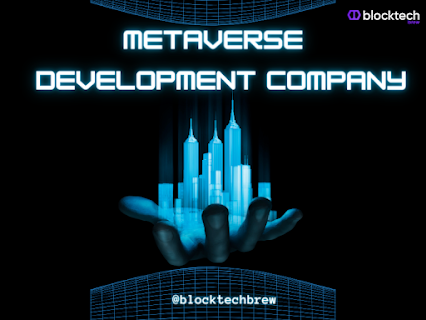How Metaverse and NFTs are Improving the Virtual Gaming Industry
The intersection of the Metaverse and Non-Fungible Tokens (NFTs) is revolutionizing the virtual gaming industry in unprecedented ways. The Metaverse, a digital universe where individuals can interact, transact, and create content, is rapidly becoming a reality. Coupled with the emergence of NFTs, unique digital assets that can be bought, sold, and owned, this technological convergence is reshaping the landscape of virtual gaming. In this article, we will explore how the Metaverse and NFTs are driving innovation and enhancing the gaming experience for players and developers alike.
Authentic Ownership and Digital Assets:
NFTs have introduced the concept of authentic ownership to the virtual gaming industry. Unlike traditional in-game items or currency, NFTs provide players with true ownership of their digital assets. These assets can range from rare weapons and character skins to virtual real estate and unique in-game collectibles. Through the use of blockchain technology, NFTs allow players to prove ownership and establish scarcity, creating a thriving marketplace for virtual goods. This newfound sense of ownership adds value and excitement to the gaming experience, as players can now truly own and trade their digital assets.
Player-Driven Economies:
The integration of NFTs into virtual gaming has given rise to player-driven economies within the Metaverse. By allowing players to buy, sell, and trade digital assets using cryptocurrencies, these economies enable real-world value creation within virtual environments. Players can earn income by creating and selling unique in-game items, offering services, or even monetizing their skills and expertise. This not only empowers gamers but also fosters a more immersive and rewarding gaming experience.
Enhanced Customization and Personalization:
The Metaverse, combined with NFTs, offers unprecedented levels of customization and personalization for gamers. NFTs can represent unique cosmetic items, accessories, and avatar enhancements that players can own and showcase within the virtual world. This enables individuals to express their creativity and individuality, enhancing the social aspect of gaming. Furthermore, the ability to customize and personalize virtual assets creates a strong sense of attachment and investment in the gaming experience, leading to increased player engagement and loyalty.
Play-to-Earn Opportunities:
The integration of NFTs and blockchain technology in virtual gaming has introduced the concept of "play-to-earn." Players can now earn real-world rewards by participating in gameplay, completing quests, or contributing to the virtual economy. In some instances, players can even earn a living by dedicating their time and skills to the virtual world. This paradigm shift blurs the line between work and play, opening up new opportunities for gamers to monetize their passion and dedication.
Cross-Platform Interoperability:
The Metaverse and NFTs facilitate cross-platform interoperability, allowing players to seamlessly transfer their digital assets and progress across different games and virtual worlds. This interoperability enhances player convenience and freedom, as players are no longer bound by the limitations of a single game or platform. Additionally, it promotes collaboration and interconnectedness among game developers, fostering innovation and the exchange of ideas.
Conclusion:
The Metaverse and NFTs are ushering in a new era of virtual gaming, characterized by authentic ownership, player-driven economies, enhanced customization, play-to-earn opportunities, and cross-platform interoperability. The fusion of these technologies is transforming gaming into a more immersive, inclusive, and economically empowering experience. As the Metaverse continues to evolve and NFTs gain widespread adoption, we can expect even more groundbreaking innovations in the virtual gaming industry, revolutionizing the way we play, connect, and experience digital entertainment.
When considering hiring a company for Metaverse and NFT marketplace development, there are several factors to consider:
Expertise: Evaluate the company's expertise and experience in developing Metaverse and NFT marketplace solutions. Look for a company that has a track record of successful projects and a deep understanding of the technologies involved, such as blockchain, smart contracts, and virtual reality.
Customization: Assess their ability to create tailored solutions that align with your specific requirements and business objectives. A good Metaverse NFT Marketplace Development Company should be able to understand your vision and translate it into a unique and immersive Metaverse experience.
Security and Scalability: Metaverse and NFT marketplaces involve handling valuable digital assets and transactions. Ensure that the company follows best practices for security, including robust encryption, secure smart contract development, and adherence to industry standards. Additionally, scalability is crucial to accommodate a growing user base and ensure a seamless experience within the Metaverse.
Collaborative Approach: Look for a development company that values collaboration and communication. They should be willing to work closely with you throughout the development process, incorporating your feedback and making adjustments as necessary.
Support and Maintenance: Consider the company's approach to ongoing support and maintenance once the Metaverse and NFT marketplace is launched. It's important to have a reliable partner who can provide timely updates, address any issues that arise, and offer continuous improvements to the platform.
Ultimately, the decision to hire a specific company for Metaverse and NFT marketplace development should be based on a combination of their expertise, proven track record, alignment with your goals, and the ability to deliver a secure, scalable, and immersive solution. It is recommended to compare multiple companies, request proposals, and conduct thorough due diligence before making a final decision.



Comments
Post a Comment